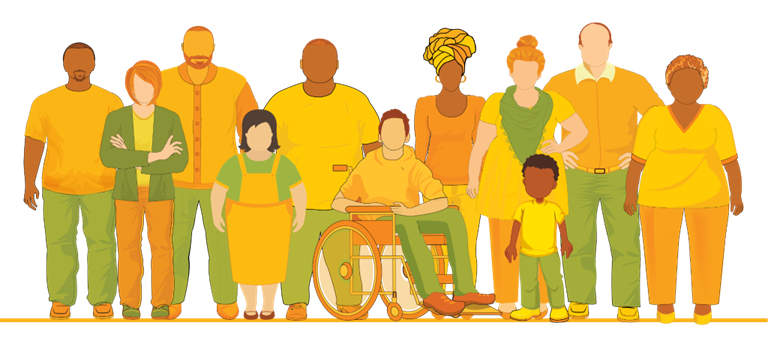by Michelle Saunders, Therap Services
Prior to 1983, Medicaid did not pay for long term care outside of institutional settings. The 1983 Section 1915(c) of the Social Security Act established an alternative to institutionalization, Home and Community Based Services (HCBS) Waivers.
The development of HCBS services spurred a transition from congregate to community living situations. Work for people with developmental disabilities was, and continues to be, transitioned from sub-minimum wage jobs in sheltered workshop settings to community employment. Consequently, service planning was required to be the result of a person-centered planning process that emphasized self-direction. Additionally, record keeping expectations have become more stringent and agency records are increasingly subject to audits.
The HCBS Waiver regulations established consistent annual requirements to maintain the integrity of Medicaid, while giving states the flexibility to develop programs that promote an Individual’s rights and capability to live a socially integrated and independent life. A summary of Section 1915(c) follows:
- Eligibility is based on an Individual having an institutional, nursing home or hospital level of care and is reviewed annually.
- Service plans provide medical assistance consistent with written plans of care for case management services, homemaker/home health aide and personal care services, adult day health services, habilitation services, and respite care.
- Service Plans are reviewed and revised as necessary at least annually.
- Habilitation services are services designed to assist individuals in acquiring, retaining, and improving the self-help, socialization and adaptive skills necessary to reside successfully in home and community-based settings including prevocational, educational, and supported employment services as long as those services do not supplant other publicly available services.
In Therap’s Commercial Off the Shelf (COTS), Software as a Service (SaaS) documentation system, the individual supported is the nexus of data entered into the platform. In designing the system, the goal was to develop a comprehensive database that, like the three-ring binders paper systems of the past, was a single methodology for data entry and data review. Moreover, Therap’s decision to create a COTS / SaaS system has allowed the HCBS changes to be integrated into Therap’s documentation system as enhancements, rather than as changes that required starting over.
The central component of Therap’s record system is the Individual Demographic Form (IDF).
- The IDF is a detailed description of an individual’s history and it can be initiated while the individual is an applicant for services (prospective new admit), maintained and updated while the Individual is receiving services and, with specific permissions, is accessible when the individual is no longer receiving services.
- At the time an individual applies for or is referred to an agency, known as “Pending Admission” status in Therap, documents and notes can be attached to the IDF to evaluate eligibility for services. Additionally, the management and review of the agency’s prospective new admits can be elevated by using the Priority List and Questionnaire modules.
- When an individual is accepted for services, the IDF is used to link the Individual to planning services for the development and implementation of a service plan. Once the person is accepted for services and “admitted” into the agency’s Therap system a variety of other data sets, such as health, behavior, medication, diagnosis, and other data can be collected about the Individual.
- With the IDF as the core record for an individual, the capability of accessing data about that individual is intuitive. Users can easily access Individual Service Programs, Support and Behavior Plans, Health Records, and other data relevant to the individual to enter and to retrieve data.
Individual specific service delivery plans are developed and deployed via Therap’s Individual Service Program module.
- Individual Service Program (ISP) is the term Therap uses for service or care plans used to develop habilitation plans to assist individuals in acquiring, retaining and improving the self-help, socialization and adaptive skills necessary (e,g, goals and supports) to successfully reside in community-based settings.
- These service programs are developed and maintained by the organization providing services in collaboration with the individual and their team.
- The Individual Service Program daily documentation is entered as ISP Data by the assigned Direct Support Professionals or other agency staff. (Access to do so is permission and caseload driven as determined by the organization.)
- The entered service data can be used to generate ISP Data reports to evaluate the effectiveness of Individual Service Programs whenever necessary.
- Individual Service Programs can be modified as needed to respond to progress towards goal attainment (positive or negative) and the changing desires and expectations of the Individual, with detailed person centered descriptions, scoring methods, standard evaluation reports and simple data collection screens.
During 2016 and 2017 Therap also developed a Service Plan / Individual Support Plan module. This functionality enhanced the organization’s ability to develop annual (or as needed) service plans that were consistent with the changing approach to Person Centered Planning and were available within the comprehensive system.
In August of 2021, the module assumed a new identity, was updated to further enhance the Person Centered Planning process, introduce additional flexibility and add new features based on feedback from the Therap User Community. Since its introduction, the Individual Plan module has been revised as needed to best serve the planning processes for Individuals in service, while improving ease of use and sharing with the individual’s team.
The updated Individual Plan maintained the originating core components:
- Captures the individual’s broad goals.
- Is in accordance with CMS requirements for health and welfare.
- Links the goals to the Individual Service Programs that are used to record and score the day to day delivery of services and supports.
- The Individual Plan includes the Personal Focus Worksheet that can be used to capture the individual’s personal goals identified by working with the Individual’s personal and professional Circle of Support.
- The individual’s personal preferences can then be linked to an Individual Plan Agenda that captures the dates and events necessary to meet CMS requirements for Person Centered Planning as well as required notes, questions and links to stored documents such as the Eligibility assessment and Level of Need assessment. Moreover, the Individual Plan Agenda can be used as the actual agenda for an individual’s planning meetings, be it annual, six month reviews or as needed planning meetings.
Also in 2017, to maximize the power of the collected ISP Data, Therap released the Data Driven Outcomes (DDO) Business Intelligence dashboard. DDO is used for tracking outcomes and measuring the quality of services and supports provided to all Individuals supported.
On the DDO dashboard, providers are able to aggregate multiple individuals’ progress across program and service types, domains and service providers (staff) in comparison with identified agency outcomes and objectives. Furthermore, the dashboard allows the provider to drill down to the Individual level, providing analysis of the individual’s response to service delivery over longer periods of time, how these results align with agency defined quality standards and the individual’s goal attainment results when working with each assigned staff.
To further expand Person Centered Planning methods, Therap became the first licensed Technology Partner of the Charting the LifeCourse Nexus. Charting the LifeCourse (CtLC) is a person-centered planning framework developed by the Charting the LifeCourse Nexus and copyrighted by the Curators of the University of Missouri, University of Missouri-Kansas City Institute for Human Development, Missouri’s University Center for Excellence in Developmental Disabilities Education, Research and Services (UCEDD). This partnership resulted in the release of Therap’s Charting the LifeCourse module.
This module is a person-centered framework that includes several tools as part of a comprehensive approach of planning for an Individual in service and/or the individual’s family. The tools can assist in planning integrated support, vision, and other life domains in order to plan towards a better and desired life for the individual. Currently the tools that are included in this module are Life Trajectory, Integrated Supports Star, and Vision Tool. All of which can now be added to the Individual Plan.
If you’d like to learn more about how Therap can help your agency with the Person Centered Planning process, I invite you to reach out to us. Click here to get started.
Michelle Saunders is Associate Director of Business Development at Therap Services. She can be reached at [email protected].
Stay Informed on the Latest Research & Analysis from ANCOR
More News
Community Solar: Sustainable Energy for Everyone

What’s Happening on the ANCOR Connected Community?

Building a Culture of Compliance With a Compliance Management Solution


